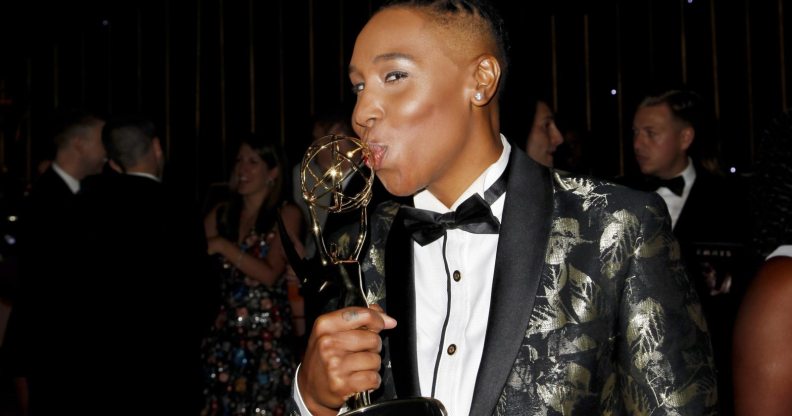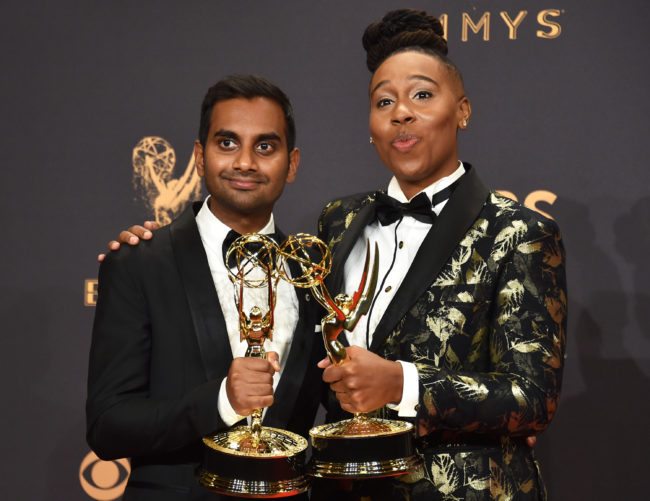Lena Waithe is the first black woman to win an Emmy for Comedy Writing

(Photo by TIBRINA HOBSON/AFP/Getty Images)
Lena Waithe made history at the Emmy awards last night as she became the first black woman to win the award for comedy writing.
Waithe, who is an openly lesbian woman won the award for co-writing the Master of None episode Thanksgiving with co-creator Aziz Ansari.

Aziz Ansari and Lena Waithe (Photo by Alberto E. Rodriguez/Getty Images)
When accepting the award, Waithe made an impassioned speech about the importance of diversity in entertainment.
“Thank you for embracing a little Indian boy from South Carolina and a little queer black girl from the south side of Chicago. We appreciate it more than you could ever know.
“My LGBTQIA family, I see each and every one of you. The things that make us different those are our superpowers.
“Every day when you walk out the door, put on your imaginary cape and go out there and conquer the world. Because the world would not be as beautiful as it is if we weren’t in it,” she said.
The iconic episode that Waithe and Ansari won the award for featured in the Netflix original Master of None, created by Ansari and Alan Yang.
Love, heartbreak, race, sexuality and humour are all explored throughout the season but episode eight, Thanksgiving, stands out by far.
It delves deeper into the backstory of Denise (Waithe), Dev’s (Ansari) childhood friend, over 30 years of Thanksgiving celebrations.
It follows the pair from childhood and their self-discovery – largely focusing on Denise realising her sexuality as a young black woman and what it means to come out to her family.
Over the years from coming out in 2006, Denise brings partners home and the journey is nothing but a rollercoaster until the 2017 Thanksgiving where her family finally accept her and her partner.
The idea to tell the story of Denise over 30 years of Thanksgivings stemmed from Ansari’s brother and was directed by Melina Matsoukas who previously worked on videos for Beyoncé and Rhianna.
Matsoukas was chosen despite being considered a “rookie” in the television world so that she could portray the black female narrative with more authenticity.
The narrative is based on Waithe’s own experience with coming out – something that the star rarely talks about in the public domain because she never “intended to make it TV fodder”.
“I never felt the need to tell it,” Waithe told BuzzFeed News. “I’m a big fan of telling a story about queer people post-coming-out because the truth is we’re more than our coming-out story.”
However, she decided she would use the opportunity to tell her story after Ansari and Yang were inspired by it.
“This will be the one and only time I do this. Let me do it right, let me knock it out the park, because I’m not going to tell that story again,” Waithe explained.
“I think it’s revolutionary, honestly, because oftentimes queer women of colour are told to sit down and be quiet and not have a voice,” Waithe said. “So the fact that everyone has embraced mine, I think, is definitely a wonderful step in the right direction.”

